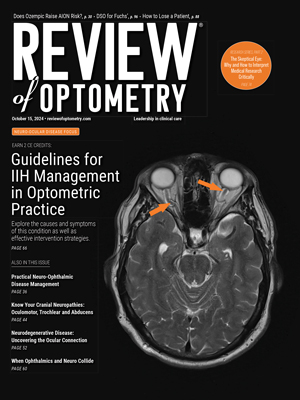A new eye drop shows early promise for reducing corneal scarring after Pseudomonas aeruginosa infection, compared with traditional treatment, according to a recent study.
Developed by researchers from the University of Birmingham, the eye drop consists of a fluid gel that includes decorin, a naturally occurring protein that binds to collagen in the corneal stroma and regulates cell proliferation, survival and differentiation by modulating numerous growth factors. The drop acts similar to a therapeutic bandage, creating a barrier that protects the surface of the eye from further damage caused by blinking.
“The novelty of this eye drop lies in the method of structuring during manufacture, which creates a material that can transition between solid and liquid states, allowing retention in a dynamic environment being slowly removed through blinking,” researchers noted in a publication of their findings.
In the study, researchers found the eye drop resulted in reductions of corneal opacity within 16 days. Also of note, the addition of human recombinant decorin helped restore corneal epithelial integrity with minimal stromal opacity.
“We believe that this drug delivery system is an ideal noninvasive anti-fibrotic treatment for patients with microbial keratitis, potentially without recourse to surgery, saving the sight of many in the developing world, where corneal transplantation may not be available,” the researchers said in their paper.
| Hill LJ, Moakes RJA, Vareechon C, et al. Sustained release of decorin to the surface of the eye enables scarless corneal regeneration. NPJ Regen Med. 2018;3:23. |

